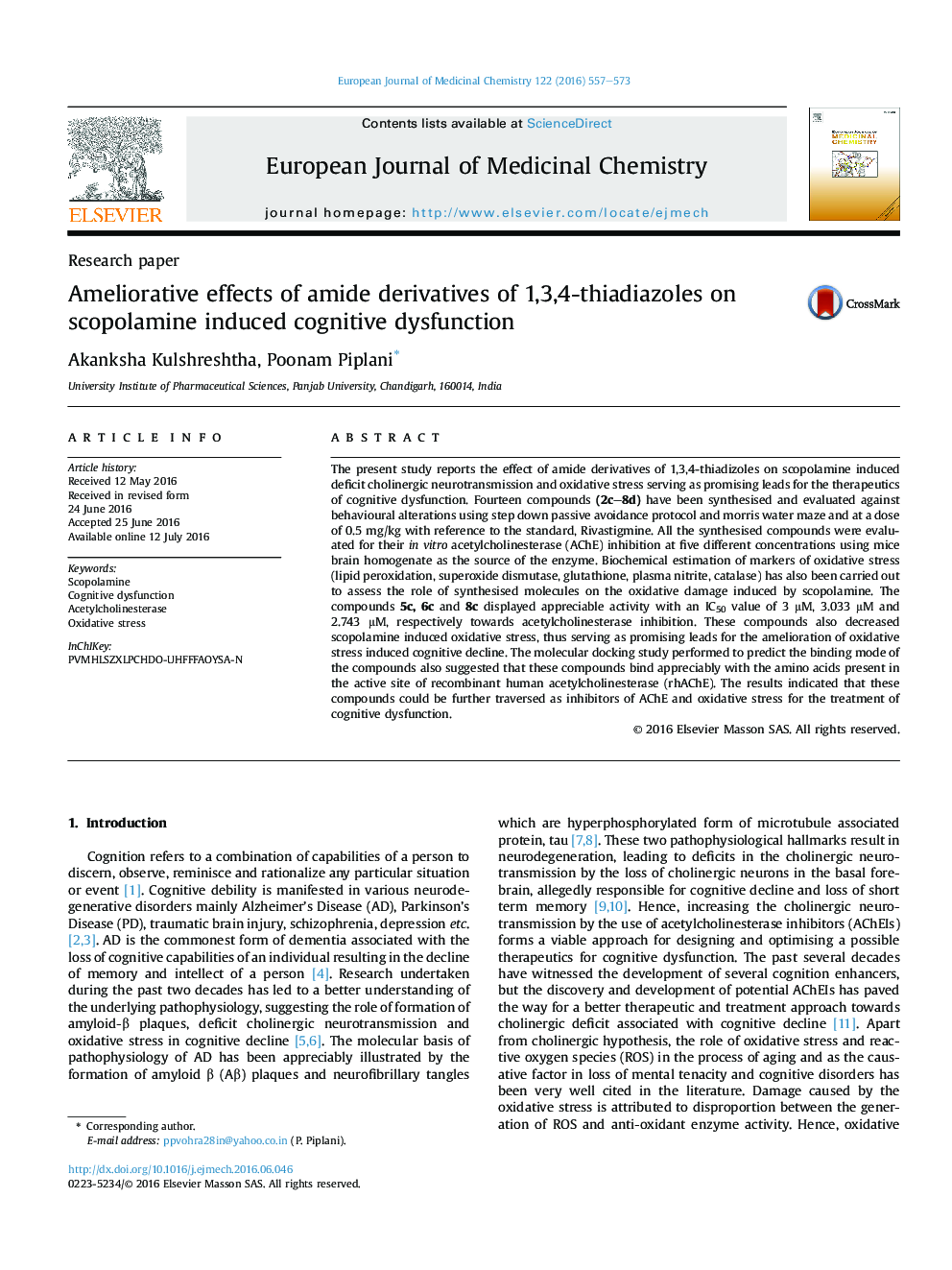| کد مقاله | کد نشریه | سال انتشار | مقاله انگلیسی | نسخه تمام متن |
|---|---|---|---|---|
| 1394943 | 1501094 | 2016 | 17 صفحه PDF | دانلود رایگان |
• Role of amide derivatives of 1,3,4-thiadiazoles in cognitive decline is discussed.
• Evaluation of memory parameters using behavioural models have been carried out.
• Biochemical estimation of the enzyme acetylcholinesterase is carried out.
• Evaluation of oxidative stress parameters and docking studies has been done.
• Compounds 5c, 6c and 8c emerged as leads effective against cognitive debility.
The present study reports the effect of amide derivatives of 1,3,4-thiadizoles on scopolamine induced deficit cholinergic neurotransmission and oxidative stress serving as promising leads for the therapeutics of cognitive dysfunction. Fourteen compounds (2c–8d) have been synthesised and evaluated against behavioural alterations using step down passive avoidance protocol and morris water maze and at a dose of 0.5 mg/kg with reference to the standard, Rivastigmine. All the synthesised compounds were evaluated for their in vitro acetylcholinesterase (AChE) inhibition at five different concentrations using mice brain homogenate as the source of the enzyme. Biochemical estimation of markers of oxidative stress (lipid peroxidation, superoxide dismutase, glutathione, plasma nitrite, catalase) has also been carried out to assess the role of synthesised molecules on the oxidative damage induced by scopolamine. The compounds 5c, 6c and 8c displayed appreciable activity with an IC50 value of 3 μM, 3.033 μM and 2.743 μM, respectively towards acetylcholinesterase inhibition. These compounds also decreased scopolamine induced oxidative stress, thus serving as promising leads for the amelioration of oxidative stress induced cognitive decline. The molecular docking study performed to predict the binding mode of the compounds also suggested that these compounds bind appreciably with the amino acids present in the active site of recombinant human acetylcholinesterase (rhAChE). The results indicated that these compounds could be further traversed as inhibitors of AChE and oxidative stress for the treatment of cognitive dysfunction.
Figure optionsDownload as PowerPoint slide
Journal: European Journal of Medicinal Chemistry - Volume 122, 21 October 2016, Pages 557–573
